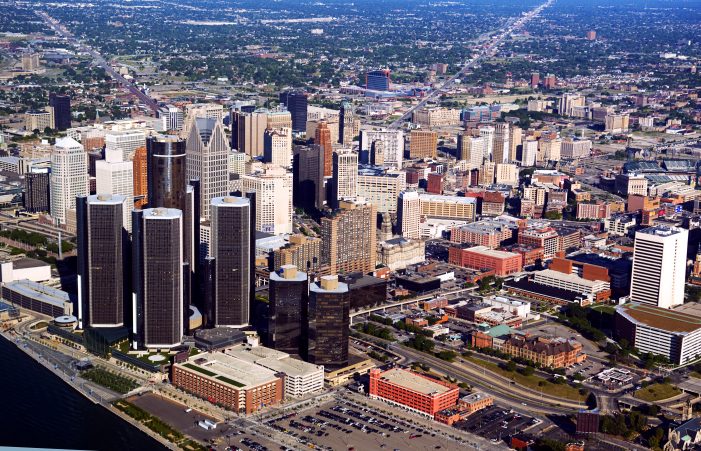Detroit is one of 10 American cities that will participate in a new national initiative that seeks to increase economic mobility for low-income residents.
 Over the next 18 months, the City of Detroit will help connect low-income residents in affordable housing units to programs and services that increase their economic opportunities and likelihood of achieving housing stability. The city will use data to identify barriers to economic opportunity for residents, test promising strategies, and share learnings with other communities.
Over the next 18 months, the City of Detroit will help connect low-income residents in affordable housing units to programs and services that increase their economic opportunities and likelihood of achieving housing stability. The city will use data to identify barriers to economic opportunity for residents, test promising strategies, and share learnings with other communities.
The new national initiative is supported by Bloomberg Philanthropies, the Bill & Melinda Gates Foundation, and Ballmer Group. It seeks to respond to the strong demand among local leaders for new, more effective interventions to address rising income inequality and declining economic mobility. The initiative is supported by a $12 million investment from Bloomberg Philanthropies, the Bill & Melinda Gates Foundation, and Ballmer Group announced last fall.
“In Detroit, it’s one of our top priorities to develop and preserve affordable housing across the city,” says Mayor Mike Duggan. “Now were going to take a closer look at best ways to connect residents in these units to the services Detroit has to offer, such as job training through Detroit at Work.”
This project coincides with Detroit’s increasing investment into the preservation and development of affordable housing, including the launch of the city-sponsored $250 million Affordable Housing Leverage Fund (AHLF). As the city invests more in affordable housing, this initiative will use a metrics-based approach to identify best ways that affordable housing can serve as an access point to the city’s wide array of services

AHLF is a partnership between Detroit LISC, the City of Detroit Housing & Revitalization Department (HRD), and the Michigan State Housing Development Authority (MSHDA) to provide affordable housing developers and owners with streamlined access to financial tools that are specifically designed to address housing challenges in Detroit neighborhoods.
The defining characteristic of the American Dream is upward mobility, but new data from Opportunity Insights shows that the current generation’s chances of earning more than their parents are declining. In many communities, young people and families face significant barriers to climbing the economic ladder based on the neighborhoods in which they live.
Detroit was selected through a competitive process that looked at local commitment to addressing economic mobility, willingness to use data and evidence to accelerate progress, and ability to dedicate a team to accomplish the initiative’s goals. Over the next 18 months, Detroit will develop, pilot, and measure the early impacts of data-driven methods connecting affordable housing residents to resources, designed to help improve residents’ long-term economic mobility. Detroit will also work closely with other cities participating in the initiative to share lessons and experiences to further advance the work and build a model for future collaboration among cities on the topic.

Detroit staff have already begun working with a team of advisors from Results for America and the Behavioral Insights Team, both partners in What Works Cities, a Bloomberg Philanthropies initiative that helps cities confront urgent challenges through data- and evidence-based decision-making. Detroit city staff will deepen their data skills and strengthen their ability to deliver results to residents with the help of experts from other What Works Cities partners, including Johns Hopkins University’s Center for Government Excellence, the Harvard Kennedy School’s Government Performance Lab and the Sunlight Foundation.
Additionally, Opportunity Insights at Harvard University is helping Detroit staff draw insights regarding economic mobility in the community using data from the Opportunity Atlas, an interactive resource developed in collaboration with the U.S. Census Bureau.
The other 10 cities participating in the economic mobility initiative are: Albuquerque, NM; Cincinnati, OH; Dayton, OH; Detroit, MI; Lansing, MI; New Orleans, LA; Newark, NJ; Racine, WI; Rochester, NY; and Tulsa, OK.


